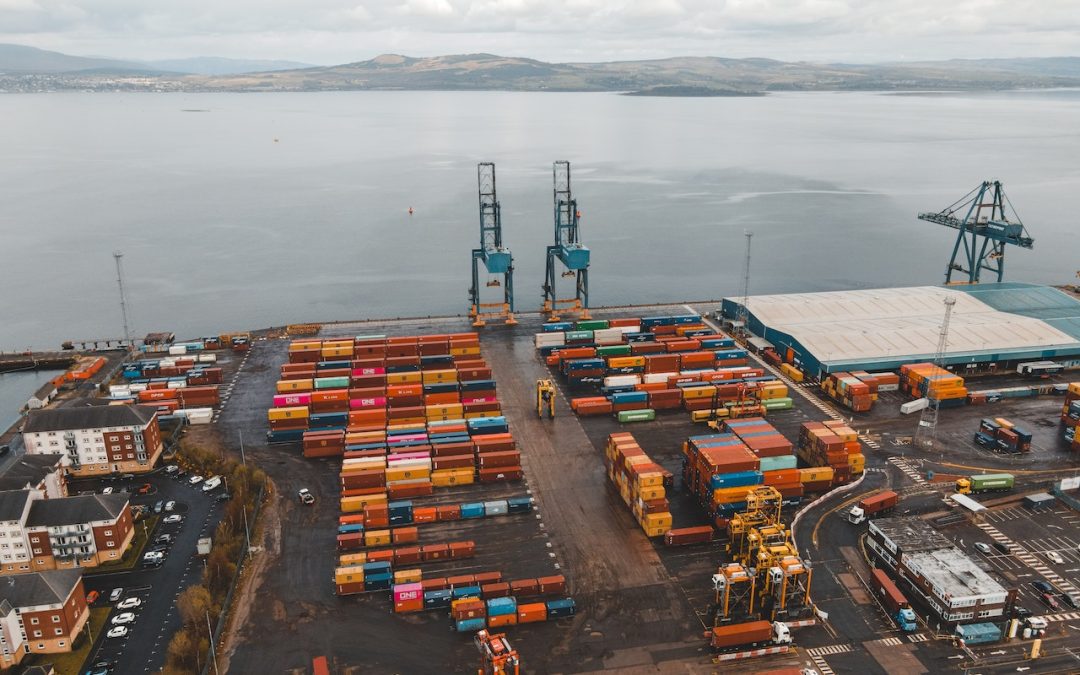Have you come across these terms before?
You’d be forgiven for thinking that freight forwarders and cargo brokers are the same thing – because sometimes they are!
But there’s more to it than that. Each has a distinct role in the process of moving goods around the globe, and knowing how they can help could save you time and money.
Read on to find out more.
What Is A Freight Forwarder?
Freight forwarders do not physically ship goods themselves. Instead, they expertly facilitate international cargo movement through a complex array of different services, such as:
- Handling customs clearance
- Organising documentation
- Booking cargo space
- Arranging delivery
- Advising on cost-effective routes and carriers
- Optimising the supply chain for timely deliveries
- Offering cargo tracking
- Ensuring compliance
- Maintaining insurance policies.
Most importantly, if you choose to work with a freight forwarder, you can rest assured that they will work hard to resolve any shipping issues that arise for you. Forwarders handle the whole process so that you don’t have to. For comparison’s sake, we can liken their role in the shipping scene to that of a travel agent; you describe what solution you require, and a freight forwarder will find you the best deal to suit your needs.
To confuse things, some freight forwarders are also customs brokers.
What Is A Customs Broker?
Where freight forwarders wear many hats, customs brokers, as their name suggests, are namely experts in customs regulations and international trade compliance.
The role of the customs broker is not as broad as a freight forwarder but is just as important for getting your goods to their destination swiftly. Customs brokers:
- Represent your business through the clearing customs
- Assist with smooth import and export processes
- Handle necessary documentation and tariff classifications
- Facilitate communication with customs officials
- Expedite shipments and reduce border delays
- Provide valuable advice on trade procedures
- Work to ensure shippers remain compliant with HMRC and other countries’ governmental departments responsible for assessing and collecting taxes
- Help shippers claim preferential rates and access other schemes such as VAT deferment.
As you can see, the role of the customs broker is narrower than that of the freight forwarder, but their expertise is unwaveringly valuable for companies shipping goods internationally.
So, What Are The Key Differences?
Both freight forwarders and customs brokers are experts in streamlining your shipping experience. And although some freight forwarders offer customs brokerage, there are key differences in the roles they play.
Focus
Freight forwarders see the physical journey of the goods as a whole project and act as intermediaries between businesses and transport companies, such as carriers. They take control over many aspects of the logistics to optimise cost, time and energy.
Customs brokers, on the other hand, focus on only part of the process, ensuring shipments can get through the ports and borders legally, quickly and successfully. Brokers are intermediaries between a business and a customs department of a government.
Responsibilities
Freight forwarders facilitate the physical moving of the goods and take responsibility for the myriad of factors that go into successfully transporting a consignment from A to B.
Customs brokers are solely responsible for navigating the customs process. This can be a stressful and confusing part of shipping, and a broker’s knowledge is second to none.
Expertise
Freight forwarders have detailed knowledge of moving international cargo efficiently and safely. They are also incredibly helpful for tricky shipments, where transporting goods isn’t straightforward, such as project cargo shipments.
Customs brokers, however, have an intricate knowledge of all things customs. That is their remit, and they are experts in getting cargo through the borders safely and quickly. This can be especially helpful if you have unusual goods or goods that will require specialist insight and extra documentation.
Which Should I Use?
Whether you choose to use a freight forwarder or customs broker depends on your needs.
If, for example, you import and export goods around the world and have no clue what documents you need for clearing customs in a multitude of countries with varying regulations… A customs broker might be for you.
However, starting with a forwarder will aid you in mapping your cargo’s journey so that you can identify what customs requirements you might encounter.
This can be particularly helpful if you’re at the beginning of a venture into international shipping because a freight forwarder can help you to manage the whole process from beginning to end, including negotiating great freight rates and organising any warehousing you might need. In turn, this enables you to concentrate on other elements of your new business, knowing the logistics are in safe hands.
Another option is to opt for a full-service freight forwarder that covers customs brokerage, too. This way, you get the best of both worlds and can feel assured all aspects of getting your goods from A to B are covered.
Forwarders And Customs Brokers Streamline The Shipping Process
But the services they offer differ greatly.
Confused about which expert to speak to? Millennium can help you assess your shipping needs and signpost you to the right service if it’s not us. Get in touch today.

